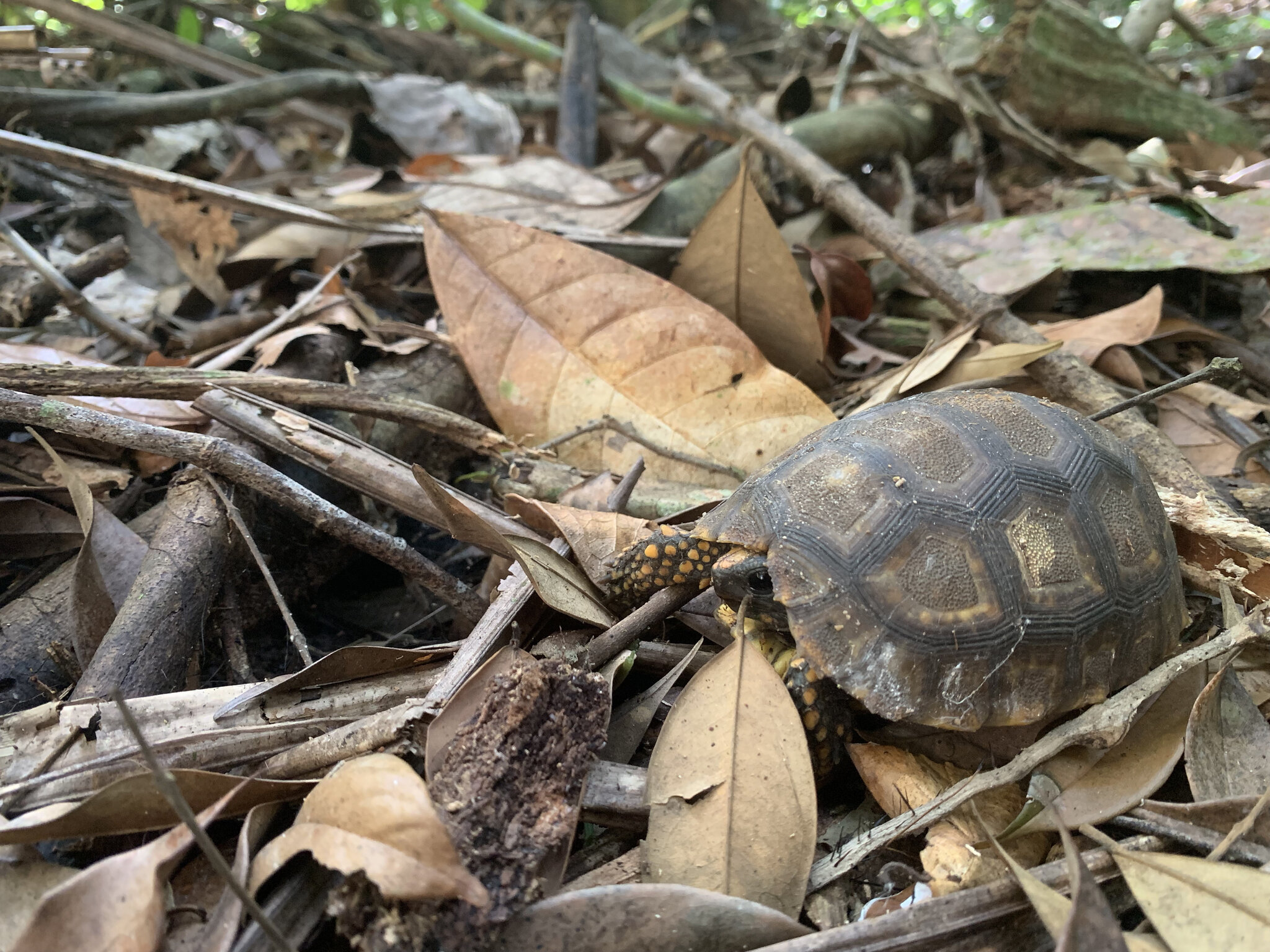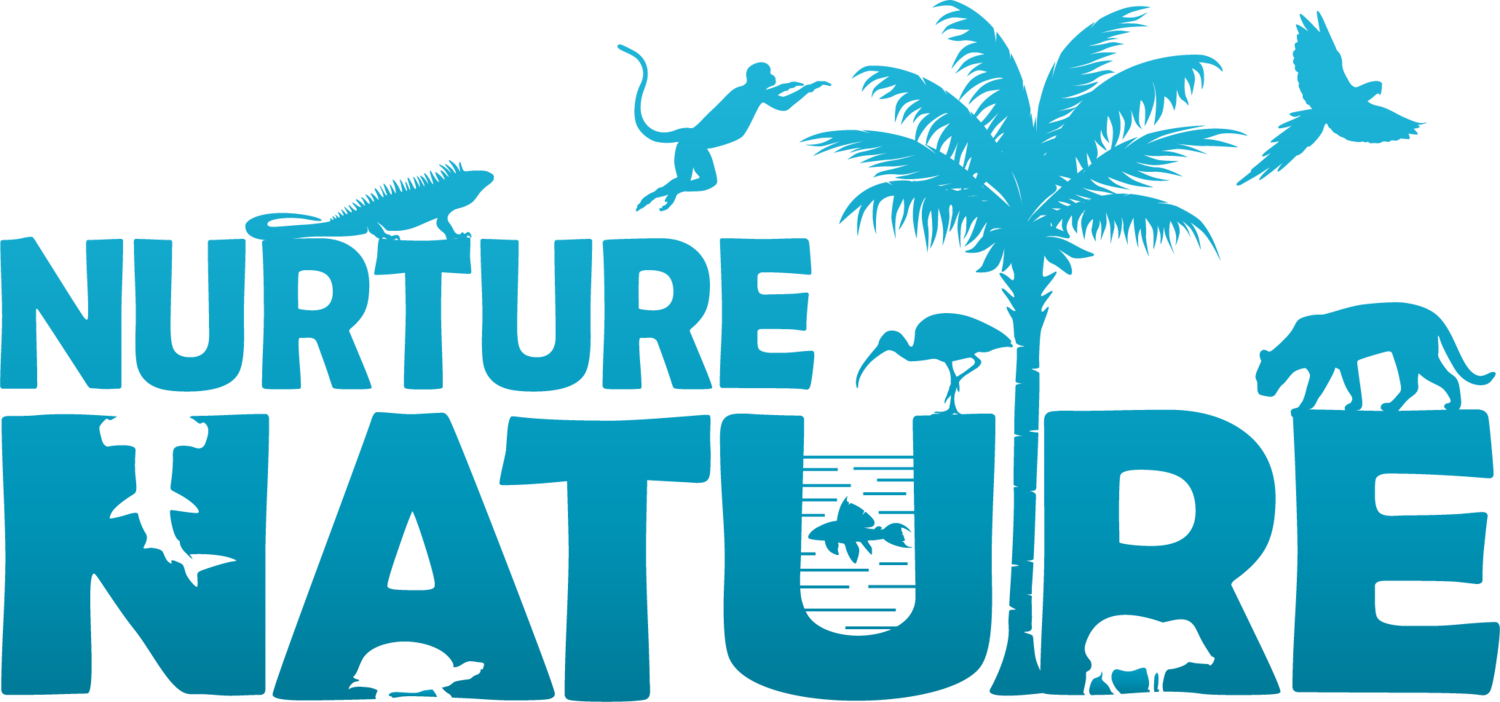Trade Insights: Yellow-footed Tortoise

I am a vanishing part of T&T history.
In Trinidad and Tobago, the Yellow-footed Tortoise (Chelonoidis denticulata) is one of two species known as “Morrocoy.” They are thought to have accompanied the original Amerindian inhabitants when they first settled here in the distant past. Bones of Tortoises (Chelonoidis sps.) have been found at First People’s archaeological sites throughout South America and the Caribbean. Yellow-footed Tortoises are a living link to T&T’s lost indigenous heritage.
© Mark Gibson
Sadly, Yellow-footed Tortoises have become very rare in Trinidad, and are extinct in the wild in Tobago. Their large size (45 - 80cm in length) makes them easy prey for hunters across their range in the South American continent. From Venezuela to Bolivia, they are taken from the wild for food or sale into the pet trade. Tortoises sold in Trinidad are mainly trafficked in from Guyana and Venezuela.
The loss of Yellow-footed Tortoises may have serious ramifications for local ecosystems. Yellow-footed Tortoises are omnivorous, performing important services of seed dispersal and carrion disposal in our forests. The International Union for Conservation of Nature (IUCN) now lists this species as “Vulnerable” to extinction, however, this species assessment was last conducted in 1996, so it is possible that the situation could now be far worse.
Yellow-footed Tortoises are Protected Animals under the Conservation of Wild Life Act (CoWLA). It is illegal to keep captive or sell them in T&T without special permits issued by the state. Any person found in possession of a Yellow-footed Tortoise without a permit is liable to a fine of $5,000. Globally, the trade in Yellow-footed Tortoises is regulated under CITES Appendix II and individuals found trafficking them into T&T may also be in violation of customs and disease control laws and face a range of other fines.


